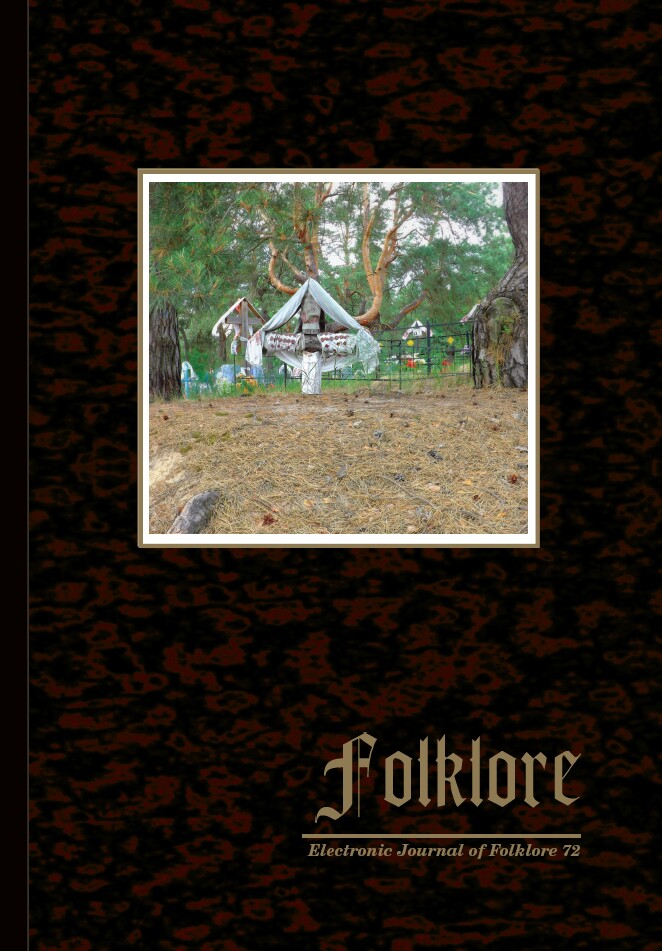The Norm and Its Deviations in the Context of Childhood Semiotics: The Belarus Tradition against the Slavonic Background
The Norm and Its Deviations in the Context of Childhood Semiotics: The Belarus Tradition against the Slavonic Background
Author(s): Tatsiana ValodzinaSubject(s): Customs / Folklore, Cultural Anthropology / Ethnology, Culture and social structure
Published by: Eesti Kirjandusmuuseum
Keywords: Belarus; childhood semiotics; deviations; folklore texts; folk medicine; incantations; transitional ritual;
Summary/Abstract: The article is dedicated to the study of early childhood in the context of ideas about its standard flow and deviations which are logical from the point of view of childhood mythology. Infancy in traditional spiritual culture is presented as a rather long period of transition, the period when the child is gradually freed from ‘chaotic’ signs, overcomes other-worldly influences, the human face of the child is finally appearing, and he or she is finally affirmed as a full-fledged member of society. Infantile diseases appear as the phenomenon stimulated by the very fact of birth and, along with that, a marker of the natural in the human body. Their overcoming becomes one more step on the way to maturing and socialization of a small human being. Child’s health in folk representations directly depends on correct (re)distribution of the lot (possessions) both among people and non-human residents of the estate. Folklore texts and rituals from early childhood recreate archaic understanding of health as a part of the overall lot. The article is based on the materials of the late nineteenth – early twenty-first centuries: of importance here are the author’s records made under a special program in expeditions to Belarusian villages over the last fifteen years.
Journal: Folklore: Electronic Journal of Folklore
- Issue Year: 2018
- Issue No: 72
- Page Range: 89-110
- Page Count: 22
- Language: English

